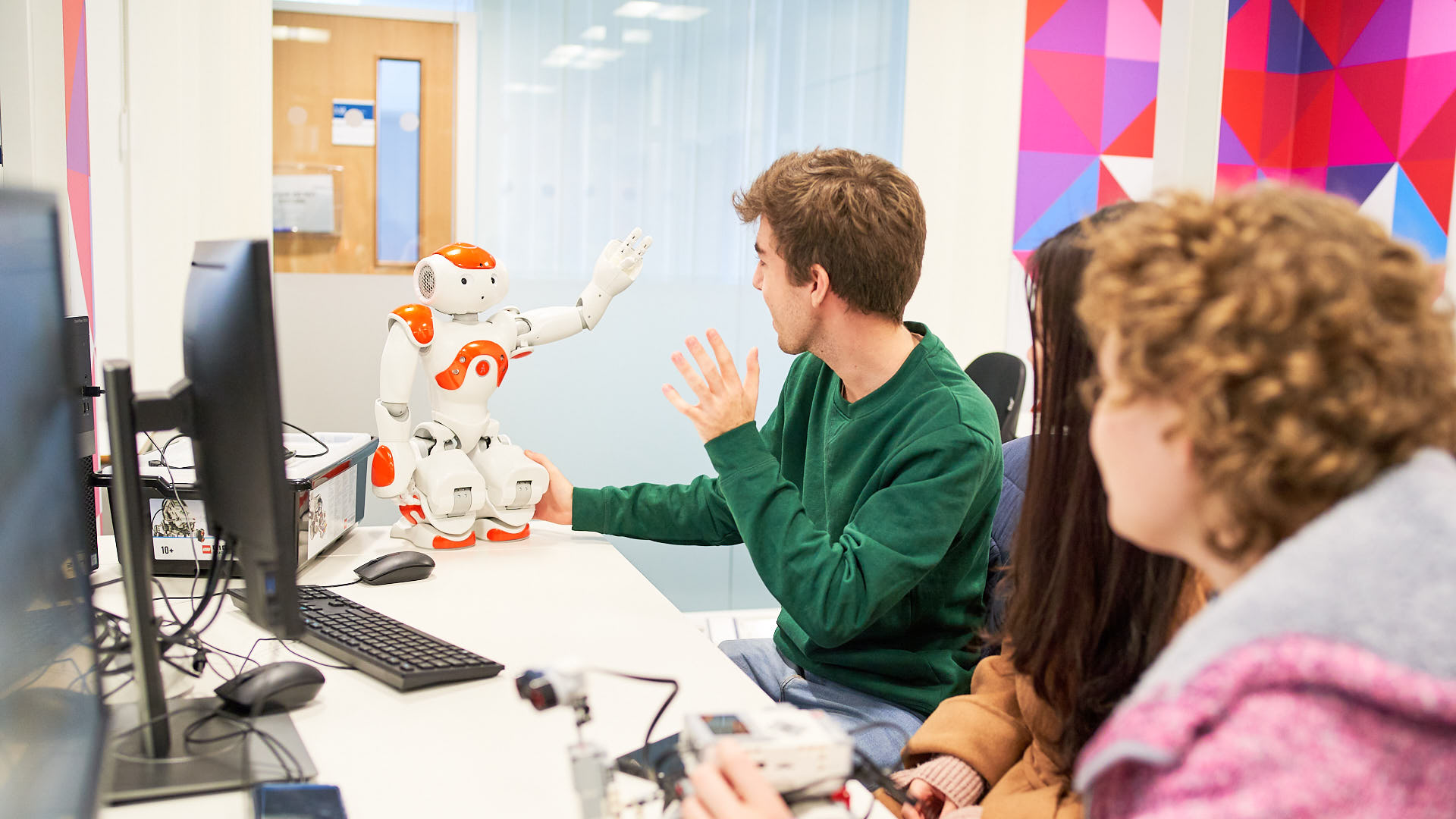The University of Bath will train a new generation of experts in accountable, responsible and transparent artificial intelligence (AI) as it leads one of 16 new UK AI Centres for Doctoral Training (CDTs) announced today (21 February 2019).
The UKRI Centre for Doctoral Training in Accountable, Responsible and Transparent AI (ART-AI) will recruit and train at least 60 PhD students from diverse backgrounds, including existing experts in AI, but also from engineering, social science and policy backgrounds to help ensure that developments in AI, and decisions on how and when to use it or not, are informed and ethical.
The pervasive impact of AI means that we need individuals making those decisions to be trained not only in AI but also in the applications and implications of AI across domains from engineering to public policy. The ART-AI CDT will produce interdisciplinary graduates who can act as leaders and innovators with the knowledge to make the right decisions on what is possible, what is desirable, and how AI can be ethically, safely and effectively deployed.
Professor Eamonn O’Neill, head of the Department of Computer Science at University of Bath and Director of the ART-AI CDT said: “We're delighted to lead the UKRI ART-AI from the University of Bath, where we will train world-leading 'specialists with perspectives'.
“The UK is at the forefront of the artificial intelligence and data revolution, and explicit consideration of ethics is essential as AI increases the ability of machines to inform, augment and even replace human decision-making. ART-AI will provide a national and global lead on AI ethics and its influence on AI innovations, applications and implications.
"Our training will bring together students from a variety of backgrounds in interdisciplinary teams, addressing real problems as researchers and reflective practitioners; able to apply knowledge and creative thinking while taking account of individual, societal, and ethical concerns.
"We will recruit from a broad range of backgrounds. We will train AI specialists to deepen their knowledge and innovation capabilities, widen their understanding of applying AI, and take account of the ethical implications of its use. Engineers will develop their skills and knowledge of AI and its applications, opportunities, requirements and constraints. We will also train social scientists and policy experts to develop their understanding of AI so that applications and implications can be assessed, and informed policies and guidance can be provided to industry, governments, regulators and the public."
The ART-AI CDT is led by University of Bath as part of a consortium of more than 30 partners, covering a wide range from the Financial Conduct Authority and the Church of England to CFMS, Rolls-Royce and a network of leading universities across the world. The first cohort of PhD students will begin their training in September 2019.
In total the 16 AI CDTs, based in 14 UK universities, will train 1,000 PhD students in aspects of AI. The CDTs are being funded by a £100M investment from UK Research and Innovation (UKRI), with £23M contributed from universities and £78M from partners in cash or in-kind contributions.
UK Research and Innovation Chief Executive, Professor Sir Mark Walport, said: “Artificial intelligence is a disruptive technology in a range of sectors, enabling new products and services and transforming data science. It allows us to develop new approaches to challenges as diverse as early disease diagnosis and climate change.
“To maintain its leadership in AI, the UK will need a new generation of researchers, business leaders and entrepreneurs equipped with new skills. Working with partners across academia and industry, the centres announced today will provide the foundations for these future leaders.”
Business Secretary Greg Clark said: “The UK has long been a nation of innovators and today’s package of AI skills and talent investment will help nurture leading UK and international talent to ensure we retain our world-beating reputation in research and development.
“Artificial intelligence has great potential to drive up productivity and enhance every industry throughout our economy, from more effective disease diagnosis to building smart homes. Today’s announcement is our modern Industrial Strategy in action, investing in skills and talent to drive high skilled jobs, growth and productivity across the UK.”

